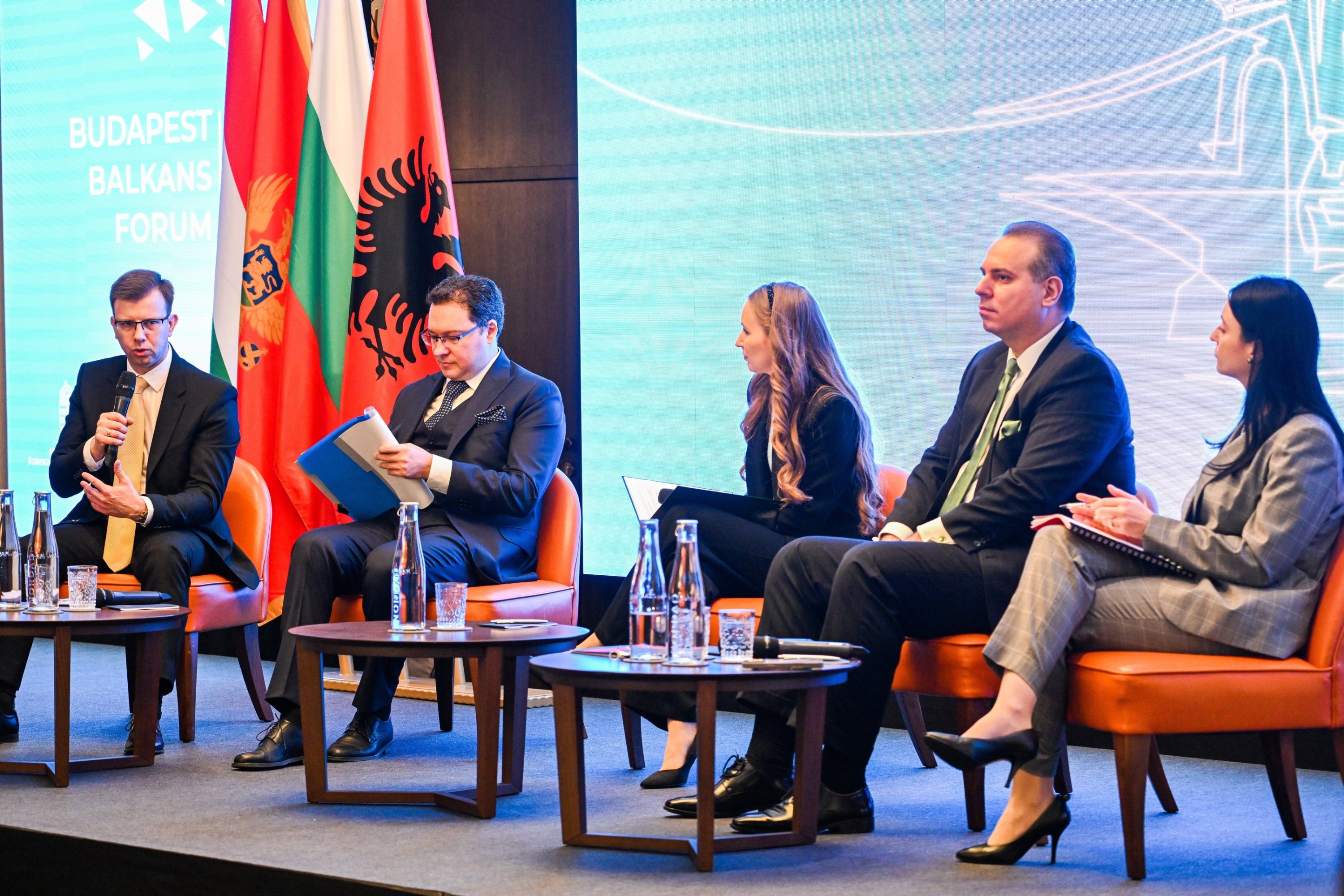© Turkuvaz Haberleşme ve Yayıncılık 2026
NATO and the EU spent two decades promoting integration, the rule of law and regional cooperation. But today, Balkan states are forging new military alliances outside institutional frameworks, reshaping the regional order through raw power politics. The return of realism is not theoretical – it is happening on the ground, driven by states that no longer trust Western institutions to deliver security or stability.
The answer lies in the erosion of trust, both in liberal frameworks and in the ability of Western institutions to manage strategic competition. The alliances emerging between Albania, Croatia and Kosovo on one side, and Serbia’s outreach to Hungary and Slovakia on the other, represent not just regional realignments but a rejection of liberal idealism in favor of realist pragmatism.
Realism teaches that in an anarchic international system, states act in their self-interest to maximize power and ensure survival. Alliances are tools of convenience – temporary arrangements formed to counter threats or shift regional balances. This is exactly what we are witnessing in the Balkans today.
The joint defense declaration signed by Albania, Croatia and Kosovo seeks greater military interoperability and strategic coordination. Serbia, in response, has intensified defense cooperation with Hungary and Slovakia, attempting to consolidate its own sphere of influence. These developments are not anomalies – they are textbook examples of balance-of-power behavior.
For the first time in decades, the Balkans have witnessed the revival of military blocs driven by ethnicity, nationalism and history. This is a structural shift: a reemergence of realist logic in a region where liberalism had long claimed victory. The question is no longer whether these alignments are compatible with EU or NATO goals, but whether those institutions matter anymore in the eyes of regional actors.
These alliances expose the growing irrelevance of NATO and the EU in Balkan security architecture. Despite having members on both sides of these emerging blocs, NATO was not consulted in either initiative. For its part, the EU remains paralyzed by internal divisions and cannot speak with one voice on Kosovo or Serbia.
Liberal theory holds that shared norms and institutions reduce conflict and create pathways for cooperation. But in practice, these institutions are faltering under the weight of internal hypocrisy and elite manipulation. Hungary, a NATO and EU member, deepens ties with Serbia – an avowedly neutral state – without consequence. Kosovo and Albania coordinate military integration under NATO’s umbrella but without NATO's sanction.
The core problem is that the liberal order depended on a shared commitment to rules. Once key actors begin violating or bypassing those rules without penalty, the system loses credibility. In the Balkans, this loss of credibility has produced a vacuum, which is being filled not by cooperation but by calculation.

What happens next depends on how these alliances evolve – and how external powers respond. The future is full of unknowns and unknowables. Therefore, we need to seek indicators of the direction in which these changes in the operational environment will unfold.
The region splits into opposing camps. Albania, Croatia and Kosovo formalize a joint defense posture, potentially inviting other pro-Western states to join. Serbia, Hungary and Slovakia deepen coordination, possibly extending to intelligence sharing and defense procurement. NATO becomes internally fragmented, with members pursuing contradictory policies. Ethnic and nationalist tensions rise, creating flashpoints across Bosnia-Herzegovina, North Macedonia and Montenegro.
Recognizing the risk, NATO and the EU reassert strategic control. The EU accelerates accession talks with Western Balkan candidates, using incentives and sanctions to enforce alignment. NATO requires transparency and consultation for bilateral defense pacts. The goal: prevent the Balkanization of NATO itself. This requires political will, which is currently in short supply.
In a twist that would have seemed unthinkable a decade ago, a potential geopolitical reversal may be emerging. Under a future with the Donald Trump administration, U.S. support for Kosovo and Albania could diminish as Washington pivots toward transactional engagement with Serbia – a state long courted by both Russia and China. Special foreign envoy Richard Grenell’s past criticism of Kosovo’s leadership and Trump-era frustration with EU-aligned governments like Albania’s suggest that U.S. policy could shift from principle to pragmatism. Meanwhile, Serbia could be repositioned as a partner of convenience for Washington, especially in counterbalancing Chinese economic influence or stabilizing a volatile region through strongman diplomacy.
Russia, for its part, will continue to reinforce its bond with Serbia, not out of cultural affinity alone, but as a hedge against NATO expansion and EU encroachment. Albania, firmly anchored in NATO, remains out of reach for Moscow – but that only sharpens Russia’s focus on disrupting the fragile status quo in Bosnia, Montenegro and North Macedonia.
The Balkans no longer function as a battleground for clearly defined blocs. Instead, they become a zone of strategic ambiguity – where alignments are fluid, loyalties are traded, and great powers engage less through institutions and more through selective patronage. NATO and the EU, once dominant, have become peripheral actors in a region where the rules are being quietly rewritten.
The Balkans are no longer a story of post-conflict integration. They are now a theater of pre-conflict alignment. The liberal vision of the region as a cohesive, stable part of Europe has been overtaken by realist realities. New alliances reflect deepening mistrust – not just between neighbors, but toward the institutions that were supposed to protect them.
If NATO and the EU cannot adapt to this shift – if they continue to treat the region as a managed periphery – they will lose their last footholds of influence. Realism has returned to the Balkans. The West must decide whether it wants to confront this reality – or be overtaken by it.
